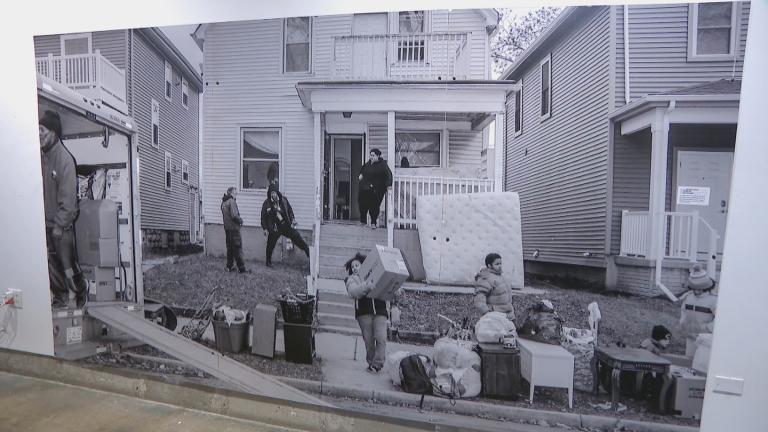Legislation designed to revamp Cook County’s property tax scavenger sale system and close loopholes that fueled disinvestment in communities home to Black and Latino residents is headed to Gov. J.B. Pritzker’s desk after passing the General Assembly.
Pritzker is expected to sign the bill, which was prompted by “Maps of Inequality: From Redlining to Urban Decay and the Black Exodus,” a study Cook County Treasurer Maria Pappas’ office released in July. The study was part of a concerted effort by her office to revamp the system designed to return distressed properties saddled with mountains of tax debt to productive use.
Pappas said the bill, sponsored by Chicago Democratic state Reps. Kam Buckner and Ram Villivalam, was “the most significant property tax reform legislation the General Assembly has approved in decades.”
Pappas’ office concluded that the property tax scavenger sale, Cook County officials’ most powerful tool to breathe new life into these distressed properties, was “a failure,” in part because it was launched in 1943 by the same officials who created the system of modern segregation in the first place.
“The vast majority of property owners who fall behind on their property taxes are in predominantly Black and Latino communities,” Pappas said in a statement. “These changes will prevent millions of dollars of generational wealth from being stripped from these households. Property tax law must be made more fair and our legislation does that.”
The legislation will slash the annual interest rate on delinquent property taxes from 18% to 9%, in an effort to reduce the number of properties auctioned off because they are so far behind on their tax bills.
That change will save property owners between $25 million and $35 million annually, with most of those savings going to Black and Latino residents of Cook County, Pappas said.
The scavenger sale takes place every two years, allowing the treasurer’s office to put vacant and abandoned properties with at least three years of unpaid taxes up for auction. Bids start at $250, with an additional $190 in fees.
Property owners have another opportunity to pay their back taxes and penalties and regain full ownership. But if they miss the deadline, the winning bidder gets the deed to the property, often after paying only a fraction of the property taxes owed.
However, few bids result in a final sale, and the bulk of the properties remain eyesores and magnets for crime, according to the study.
The legislation awaiting the governor’s signature would allow local governments to take control of properties that are not purchased during the sale, streamlining efforts to allow new owners to redevelop the properties, Pappas’ office said.
A follow-up study by Pappas’ office released in October urged lawmakers to close a loophole in a law passed in 1872 that allowed hedge funds, private equity firms and real estate investors to siphon approximately $280 million from schools, parks, libraries, fire departments and other government agencies between September 2015 and September 2022. That works out to approximately $40 million annually, according to the study.
Annually, the Cook County Treasurer’s office auctions off the unpaid property taxes from the previous year in an effort to recoup some of the lost revenue for taxing agencies, like school districts. Once that debt is purchased and a lien is placed on the property, the interest on those unpaid taxes grows at a 12% interest rate, making it very difficult for property owners to repay that debt and regain complete ownership of their home, according to the study.
That can result in profits of 54% in just three years if the owner does not pay off the debt in full, according to the study.
But few of these investment companies want to own these properties, many of which are in the economically distressed suburbs south of the city, as well as on Chicago’s South and West sides. Instead, the companies use a provision of the law that allows them to ask a judge to invalidate the sale, claiming an error made the sale invalid.
In several cases examined by the study, clerical errors — including a misspelled street name — were enough to cancel the sale, which allows the tax lien holders to wash their hands of the property, with their profits intact. That drains property tax revenue from governments, deepening disinvestment and poverty, according to the study.
The legislation awaiting Pritzker’s signature would allow investors to attempt to invalidate those sales because of an error made by the county, but the error would have to be significant, as determined by a judge, officials said.
The studies that spurred the legislation were authored by authored by two former Chicago Tribune reporters, Hal Dardick and Todd Lighty, who were hired by Pappas to investigate inequities in the county’s property tax system.
Contact Heather Cherone: @HeatherCherone | (773) 569-1863 | [email protected]








